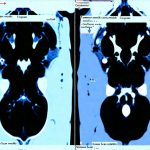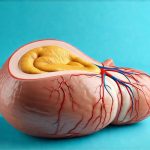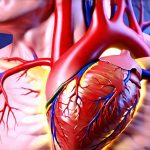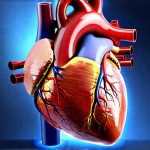Heartburn and acid reflux are terms often used interchangeably, leading to confusion about digestive health. Both relate to discomfort in the chest area, but understanding their distinct characteristics is crucial for recognizing symptoms and seeking appropriate information. Many people experience occasional episodes of either condition, and while generally not serious on their own, frequent or severe instances warrant attention. This article aims to clarify the differences between heartburn and acid reflux, providing a comprehensive overview to help you understand these common digestive experiences.
It’s important to remember that self-diagnosis can be misleading, and this information is not intended to replace professional medical advice. If you are experiencing persistent discomfort or have concerns about your digestive health, consulting with a healthcare provider is always the best course of action. They can accurately assess your symptoms and provide personalized guidance based on your individual needs.
Understanding Acid Reflux
Acid reflux occurs when stomach acid flows back up into the esophagus – the tube connecting your mouth to your stomach. This backward flow irritates the lining of the esophagus, causing a burning sensation in the chest that we commonly recognize as heartburn. It’s a physiological process that can happen to anyone occasionally, especially after eating large meals or certain foods.
While many associate acid reflux solely with heartburn, it’s important to understand that acid reflux is the cause, and heartburn is often one of its main symptoms. Other symptoms may include regurgitation (a sour taste in the mouth), bloating, nausea, and difficulty swallowing.
What Causes These Conditions?
Several factors can contribute to both acid reflux and heartburn. Lifestyle choices play a significant role, including diet, eating habits, and body weight. Certain foods are more likely to trigger symptoms, such as fatty or fried foods, spicy dishes, chocolate, caffeine, alcohol, and carbonated beverages. Eating large meals, lying down immediately after eating, and smoking can also exacerbate these conditions. Additionally, some medical conditions, like hiatal hernia or pregnancy, can increase the risk of acid reflux.
The Role of the Lower Esophageal Sphincter (LES)
The lower esophageal sphincter (LES) is a muscular ring at the bottom of your esophagus that acts as a valve between the stomach and the esophagus. Normally, it opens to allow food to pass into the stomach and then closes to prevent stomach acid from flowing back up. If the LES weakens or relaxes inappropriately, acid reflux can occur more frequently, leading to chronic heartburn. Factors like obesity, smoking, and certain medications can weaken the LES over time.
Heartburn: A Symptom, Not a Disease
Heartburn is often described as a burning sensation behind the breastbone. It’s a symptom of acid reflux but doesn’t always mean there’s an underlying medical condition. Occasional heartburn is common and usually resolves on its own or with over-the-counter remedies. However, frequent or severe heartburn could indicate gastroesophageal reflux disease (GERD), a chronic digestive disease resulting from repeated acid reflux.
Differentiating Symptoms Beyond the Burn
While heartburn is the most recognizable symptom, distinguishing between occasional acid reflux and GERD involves recognizing patterns and other associated symptoms. Frequent regurgitation, persistent sour taste in the mouth, difficulty swallowing (dysphagia), chronic cough, or hoarseness may indicate GERD and warrant medical evaluation. Paying attention to when symptoms occur – after specific foods, during exercise, or at night – can also provide valuable information for diagnosis and management.
It’s important to remember that persistent digestive issues should be discussed with a healthcare professional. They can accurately diagnose the cause of your symptoms and recommend appropriate treatment options based on your individual needs. Lifestyle modifications, dietary changes, over-the-counter medications, or prescription treatments may all play a role in managing acid reflux and heartburn effectively. Ultimately, understanding the differences between these conditions empowers you to take proactive steps towards better digestive health.


















